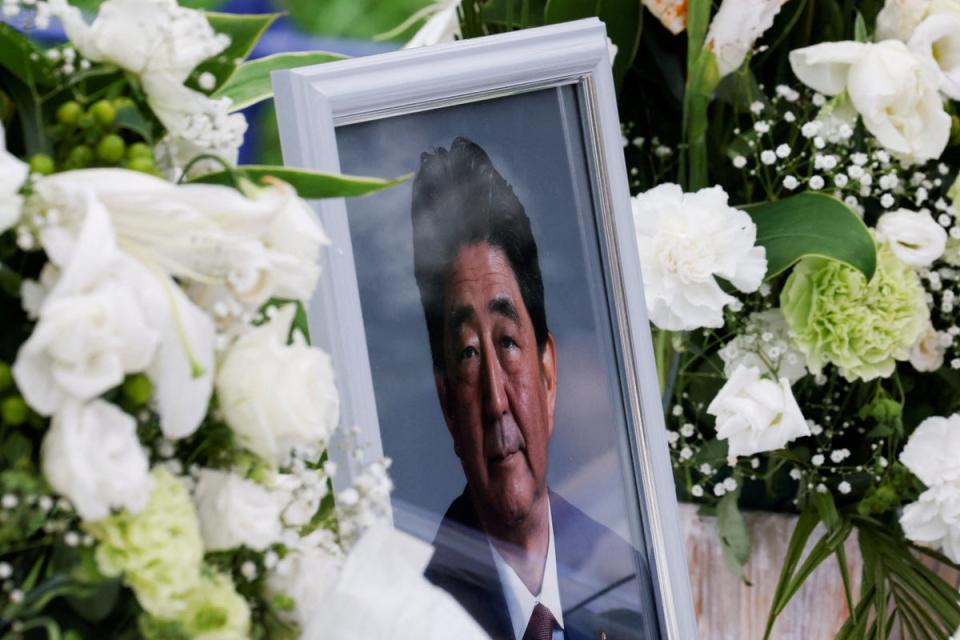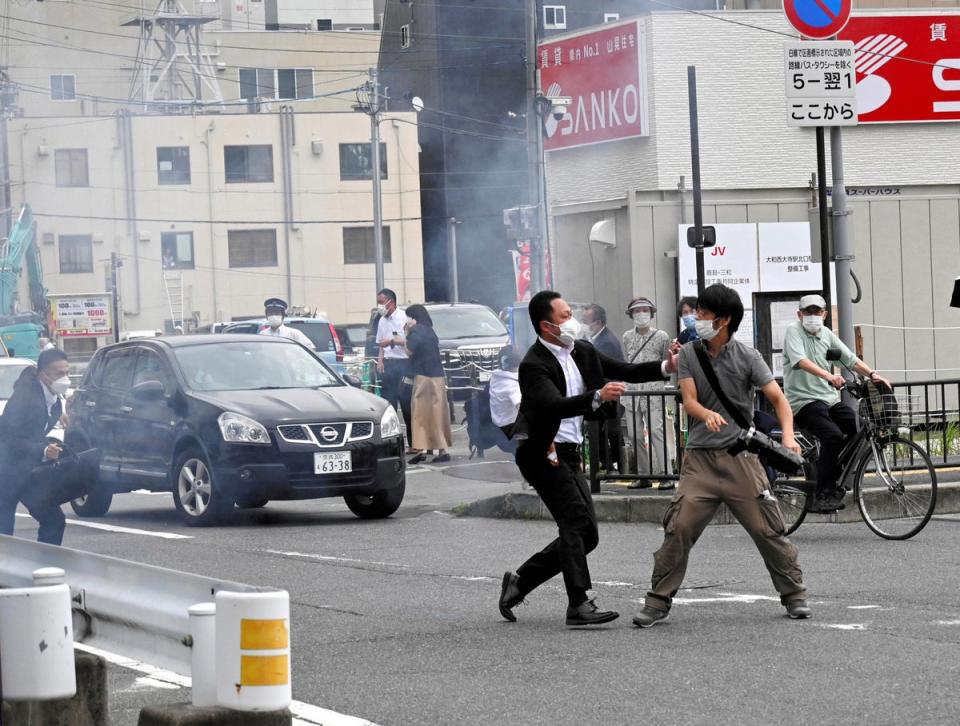Japan may tighten its gun control regulations even further in wake of Shinzo Abe’s assassination
Japan would consider possible regulation on handmade guns in the wake of former prime minister Shinzo Abe’s killing, said a government official on Tuesday.
There’s already a legal ban on owning firearms in Japan but authorities plan to look into any need to regulate handmade guns while examining the shooting that killed Mr Abe and similar incidents, chief cabinet secretary Hirokazu Matsuno told a news conference.
"We are aware that current regulations strictly restrict firearms, whether handmade or not," he said.
The comments came as the assassination of the former prime minister in broad daylight last Friday shocked a world which came to associate Japan with relatively low crime and strict gun control measures.
The country’s longest-serving prime minister, Mr Abe was shot in the back while he campaigned in the city of Nara ahead of Sunday’s upper house assembly election. He died at a hospital about five hours later.
The suspect, identified as 41-year-old Tetsuya Yamagami, apparently circumvented the nation’s ultra-tight gun regulations, as he built his own weapon. While the motive of the shooter is not yet known, the police recovered a 40-centimetre (16-inch) firearm that looked crude, more like a propellant made of pipes taped together and filled with explosives.

A raid of the suspect’s home, a one-room apartment in Nara, turned up several such guns, police said. Unlike standard weapons, handmade guns are practically impossible to trace, adding to the possibility of making the existing gun control ineffectual.
Additionally, such weapons are rarely used in Japan, where most attacks involve stabbings or dousing a place with gasoline and setting it ablaze, or running haywire on the street in a vehicle.
Japan, with a population of 125 million, had just 10 gun-related criminal cases last year, resulting in one death and four injuries, according to police. Eight of those cases were gang-related, while Tokyo reported zero gun incidents, injuries or deaths during that same year, although 61 guns were seized in the city.
Under Japan’s law, it is illegal to possess firearm, certain kind of knives and other weapons, like bowguns without a special license.

Those wanting to buy firearms must go through a stringent background check, including clearance from a medical doctor. The person must also clear a test to show they know how to use firearms correctly and those who pass and purchase a gun must also buy a special locking system for the weapon at the same time.
“Japanese people are in a state of shock,” said Shiro Kawamoto, professor at the College of Risk Management at Nihon University in Tokyo.
“This serves as a wake-up call that gun violence can happen in Japan, and security to protect Japanese politicians must be re-examined,” he added. “To assume this kind of attack will never happen would be a big mistake.”
While the security personnel may face serious questioning, such an attack on a politician in Japan is extraordinary as light security is a norm, even for a former prime minister.
The last high-profile shooting occured in 2019, when a former gang member was killed at a karaoke venue in Tokyo.
Japan has seen attacks on politicians in the past as well. In 1960, Mr Abe’s grandfather, then-prime minister Nobusuke Kishi was stabbed but survived.
In 1975, then prime minister Takeo Miki was assaulted at the funeral for former prime minister Eisaku Sato, Mr Abe’s great uncle, Japan set up a security team modelled after the American Secret Service.
Additional reporting from the wires


